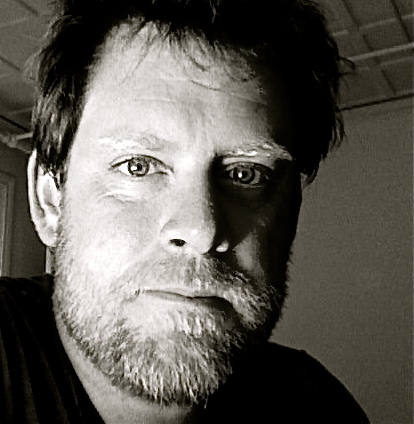Aphorisms for Pleasure and Survival
THOMAS CROFTS teaches medieval literature and classical languages at East Tennessee State University. His poems have appeared in The Texas Observer, Upstart Crow, Born Magazine and the Anthology of Southern Poetry: Tennessee. He lives with Molly, Rex, Augie and Shadow.
In his three-part column Sex and Death and Beowulf: Reflections on Teaching, Thomas discusses his role as an associate professor, how he engages with his students and his ongoing efforts to communicate the importance of classical subjects in the 21st Century.
PART III
Away, for weeks now, from the dire and exhausting frontiers of political and administrative outrage (though rumors continue to reach me at my farm), I have sufficiently recovered from those extremes to have hatched, and now to offer, the following Aphorisms for Pleasure and Survival.
Literature and Philosophy
- Literature is the true history of human possibility.
- Theory’s highest function is to be the destruction of averages.
- The Three Stages of Being and Not Being Heidegger
- Not realizing you are Heidegger.
- Realizing you are Heidegger.
- Realizing you are not Heidegger.
Drugs
It is easy to be courageous, heroic, and awesome when you’re on drugs. If you have an endless supply, you should definitely do drugs.
Art
- Lukàcs: Healthy or sick art?
Crofts: Yes.
- Art should always be free—however slowly or suddenly—to squander the inheritance.
Institutions
- A library should be like a police station: always open, always coffee, and no fucking around. But there the similarities should end.
- I favor, and will one day use exclusively, late-medieval orthography and be the anarcholexic antichrist to the mincing rectitude of Webster’s imaginary griddle.
Certain Authors
- Ovid. Remember: metamorphosis is the metaphor of metaphor
- Vergil. For these Georgics, what farmers? For these Eclogues, what shepherds? For this Epic what righteous insomniacs?
- St. Augustine. Few meanings are spiritual, in the literal sense of the word.
- Jonathan Swift.
- The great satirist knows the last word will not be one’s own. Therefore Swift makes his words like unto radioactive mushrooms.
- Eating babies: that’s funny. Gassing them: that’s not funny.
- Paul Blackburn.The mere spacing in Paul Blackburn’s poetry has liberated me. I could not have done that on my own.
Zen
- Rain cannot hurt the garbage; not because garbage is so indestructible, but because there is no garbage. Rain may hurt the flowers a little, but only as the kyosakū stick may sting the shoulder of a sleepy monk: ultimately it is a benefit.
- Sharpening the blade of a knife, you don’t touch the edge: just whet the sides until the edge is invisible.
Poetry
Do not speak to me as yet of its demise. It may yet have some little life, some little future in which I may do some major damage, leaving the world—as Machiavelli might say—‘amazed and satisfied.’ In other words, too frightened to kill it, and too weak to resist it.
On being asked to write an erotic poem
Everything I write is erotic, by definition.
Sex
There’s no such thing as a free poke. There, I’ve said it.
Death
- I think the afterlife will be a comedy. But if it’s not, that will be funny too.
- The taint of formalism touches not the dead.
Beowulf
- Beowulf is a highly rhetorical poem, and some of its bravest acts are speech acts, just as some of its subtlest combats are in the form of colloquies. Readers will remember the infuriating questions—dripping with insinuation and intolerable sarcasm—posed by the character Unferth, all calculated to humiliate or enrage the young warrior. Not only is Beowulf unruffled, he responds with such verbal razor-work that Unferth can hardly breathe without falling apart; and Hrothgar—who needs Beowulf to be the real deal—rejoices in his heart. As is the case in all battles—the people-king knows it well—the one who keeps the coolest head wins.
- But the real lesson of Beowulf comes after the dragon fight
and after the king has died from his dragon bite
and his body burned to ash in funeral fires:
when a herald is announcing to mourners, to each of kingless ones,
that, with the people-protector dead, devoid of sons,
and nothing to keep our enemies chilled
the Swedes are about to be going berserk.
That is, when all the monsters have been killed
there are always people left to continue their work.
- The Beowulf poet is mostly silent on Beowulf’s sex life. At the moment of the hero’s death we learn that he had no son. Whether this means, on the one hand, that he had only daughters, or, on the other, that died a virgin, we cannot say But this we can say: no hero’s sex life ever held a candle to St. Augustine’s.
Published: July 16th, 2015






Yea. I say it bigly and muchly, again yea. [pronounced like “yay”]
The gringo philosophy finds its completion in these aphorisms.
Without even ever have sought completion.